AL ASAD AIR BASE, Iraq (Army News Service, June 9, 2010) - Army medics from the 1st Advise and Assist Brigade, 82nd Airborne Division along with Iraqi doctors held a one-day medical clinic June 6 assessing and treating nearly 400 of the 20,000 citizens of Kubaysah, Iraq.
Capt. Kenneth Brodie, a physician assistant with 3rd Battalion, 319th Airborne Field Artillery Regiment, estimated between the several Army medics and the four primary care providers - two men and two women, one each Iraqi and American - about 90 percent of the cases who walked through the door were treated.
"We saw a lot of what we expected to see; a lot of congenital-type issues that we were unable to treat," said Brodie. "On the flipside, we were able to treat acute-type situations - dermatological rashes, ear infections, those kinds of things that we could treat with antibiotics and analgesics."
First Lt. Jessica Larson, a physician assistant with 307th Brigade Support Battalion, said she and her female Army medics treated many cases of menstrual cramping and arthritis among women; and among children, strep throat, and diarrhea and eczema issues associated with poor water quality.
Kubaysah's water is pumped in from the Euphrates River in Hit, but power issues often limit the amount of potable water available to townspeople, said the mayor. Like many nearby towns,
Kubaysah gets power from Haditha Dam, which currently has only one of six turbines in use.
"There are a lot of chronic issues that we're not able to address," said Larson. "Obviously, there's difficulty in turning people away and telling them that we're not able to help them. Then there's the reaction when you are able to help someone, you can see the appreciation on their faces.
"One of the most satisfying things is when we are able to educate them on what's going on with their bodies; a simple fix," she said.
According to Brodie, the town has only the one medical clinic. An Iraqi surgeon from the hospital in Hit visits the clinic at least twice a week.
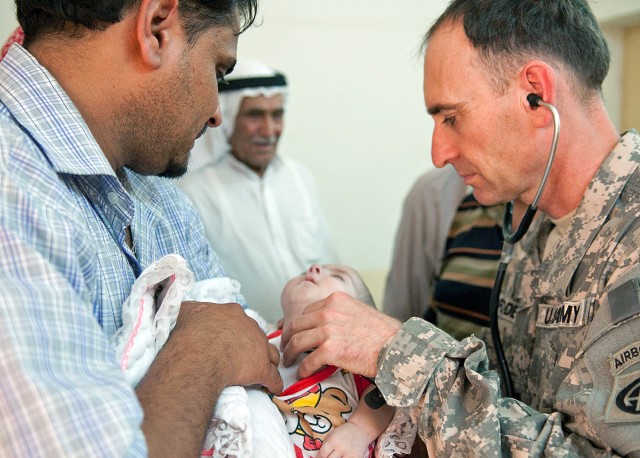
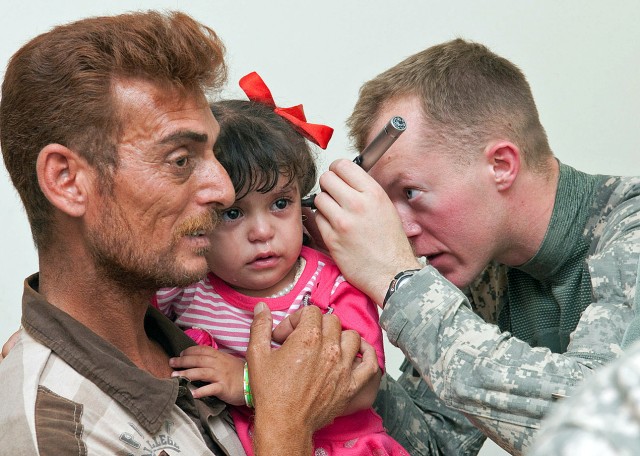
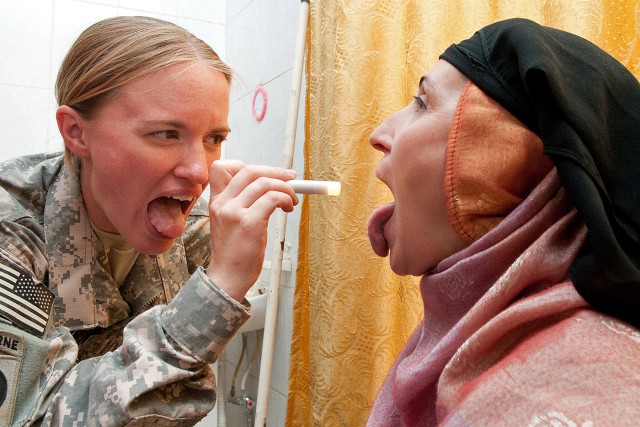
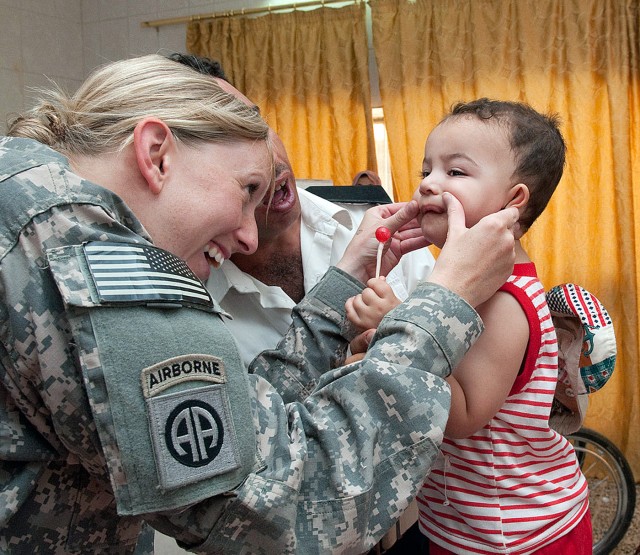
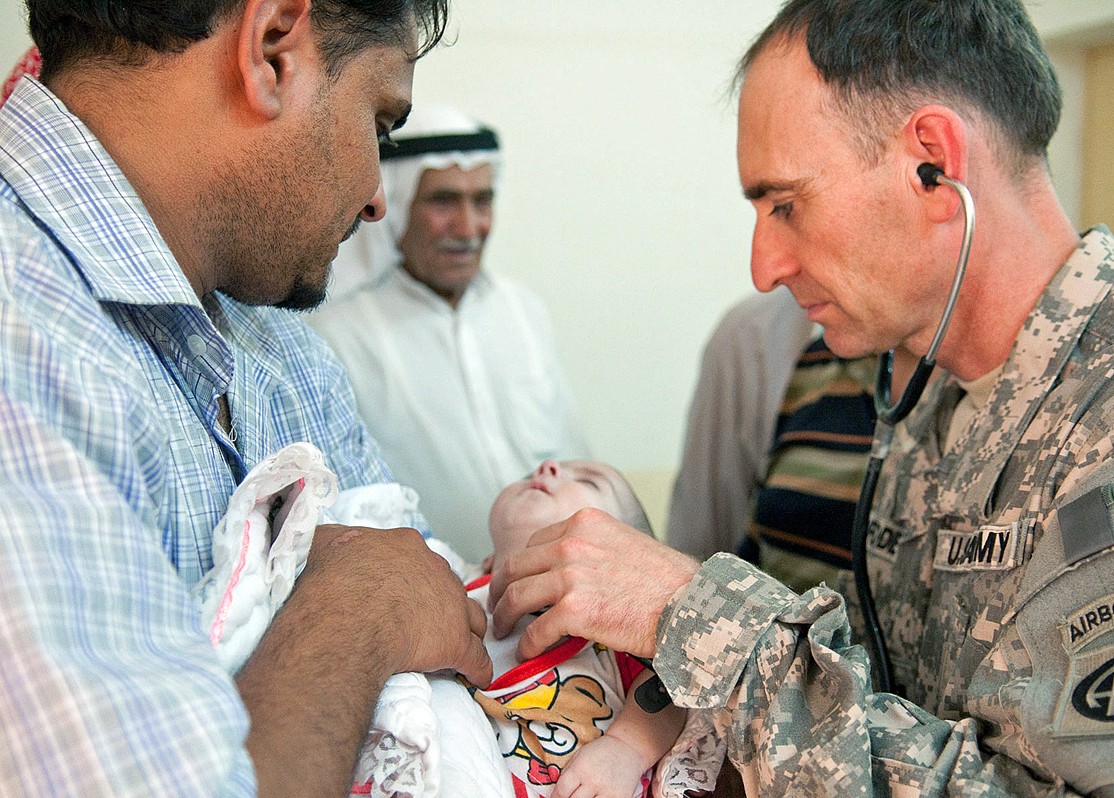
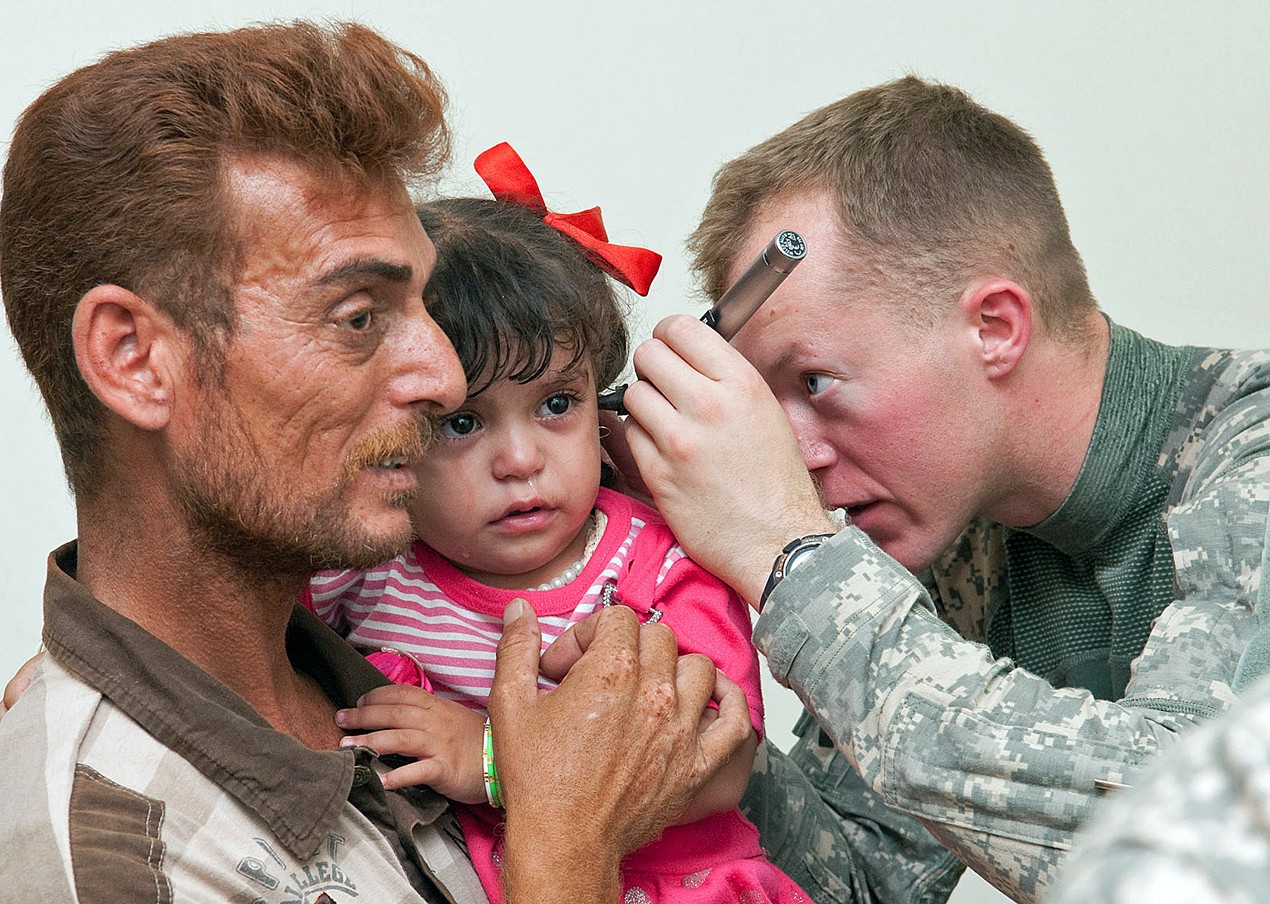
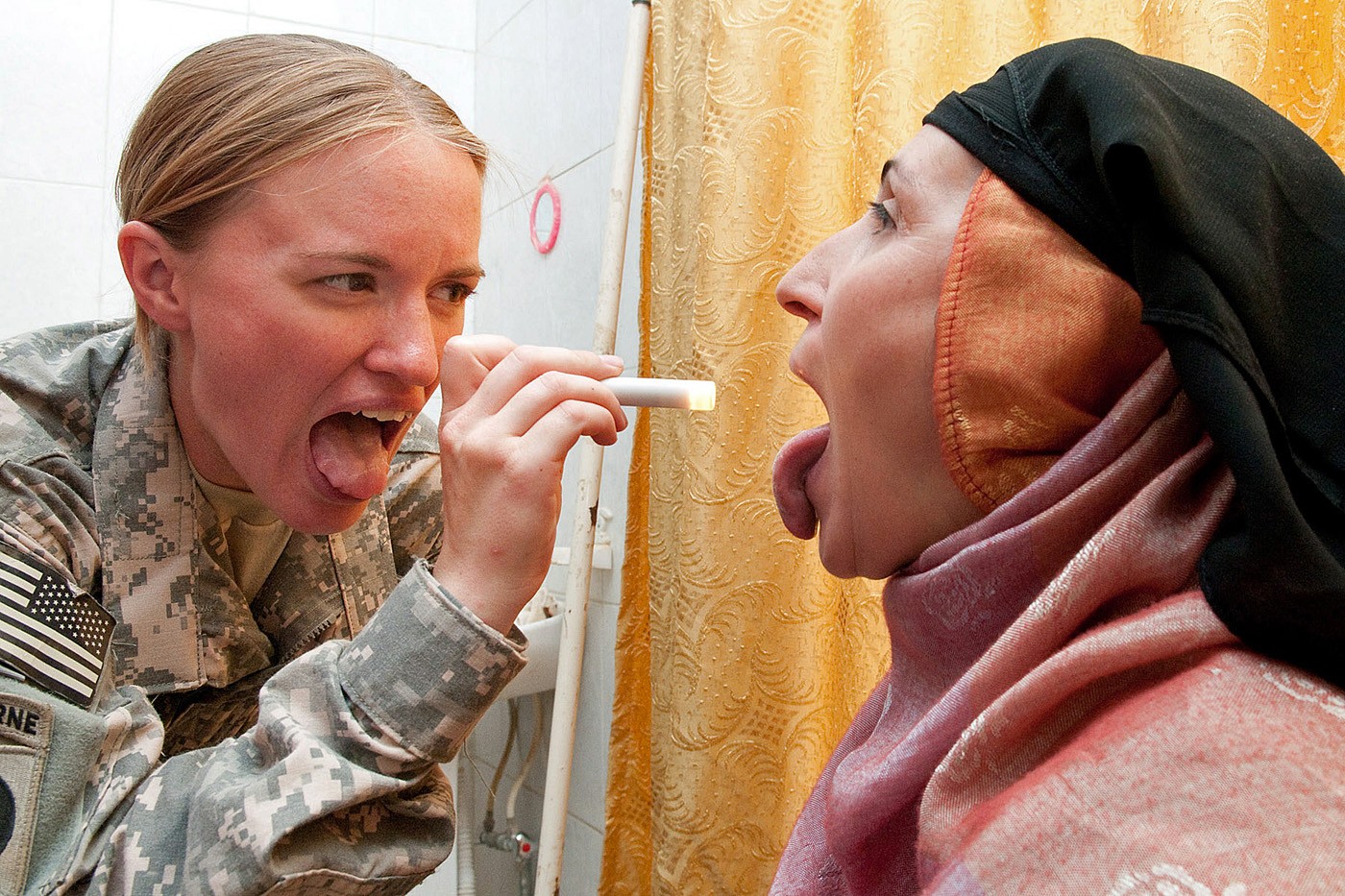
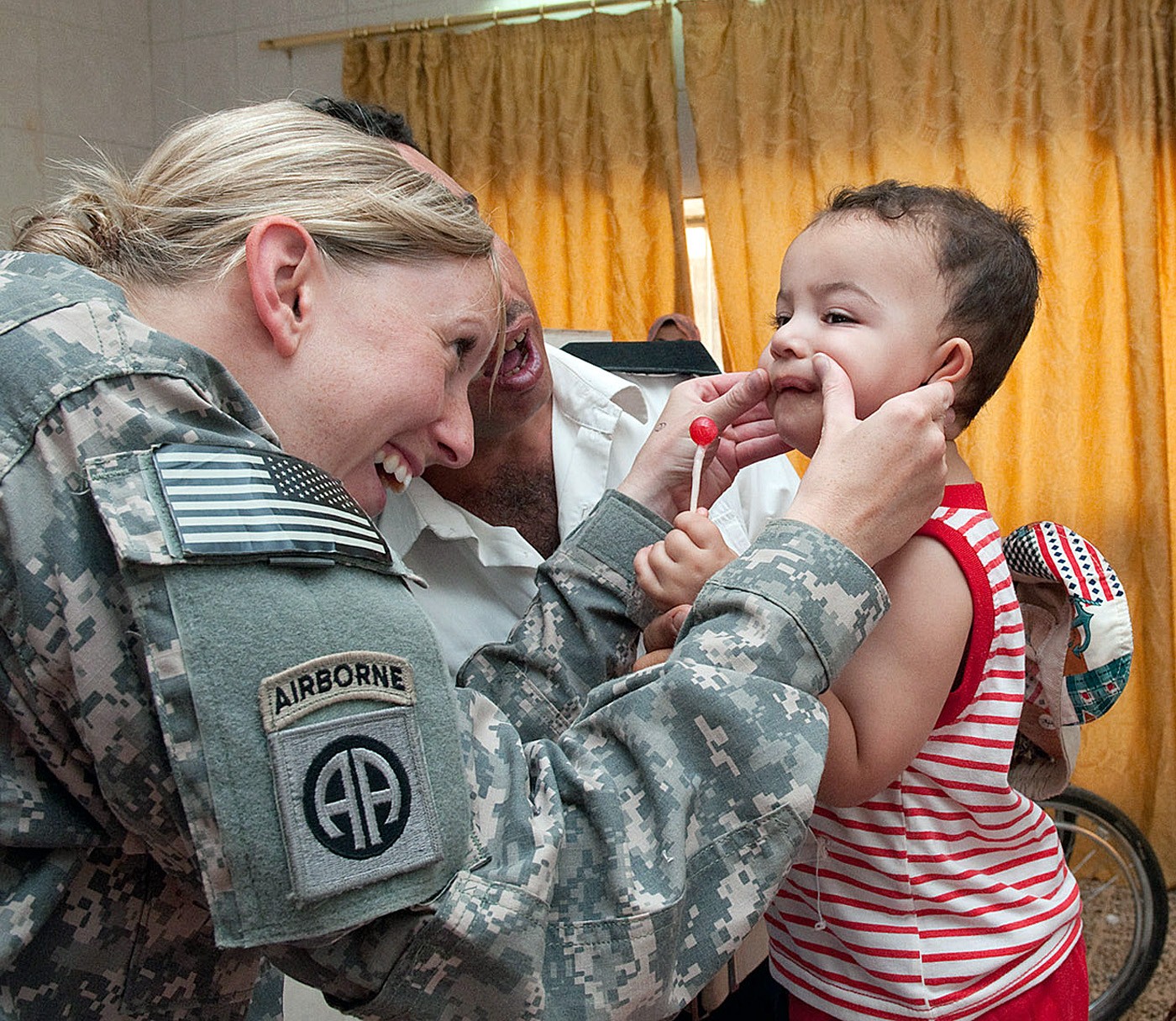
Social Sharing